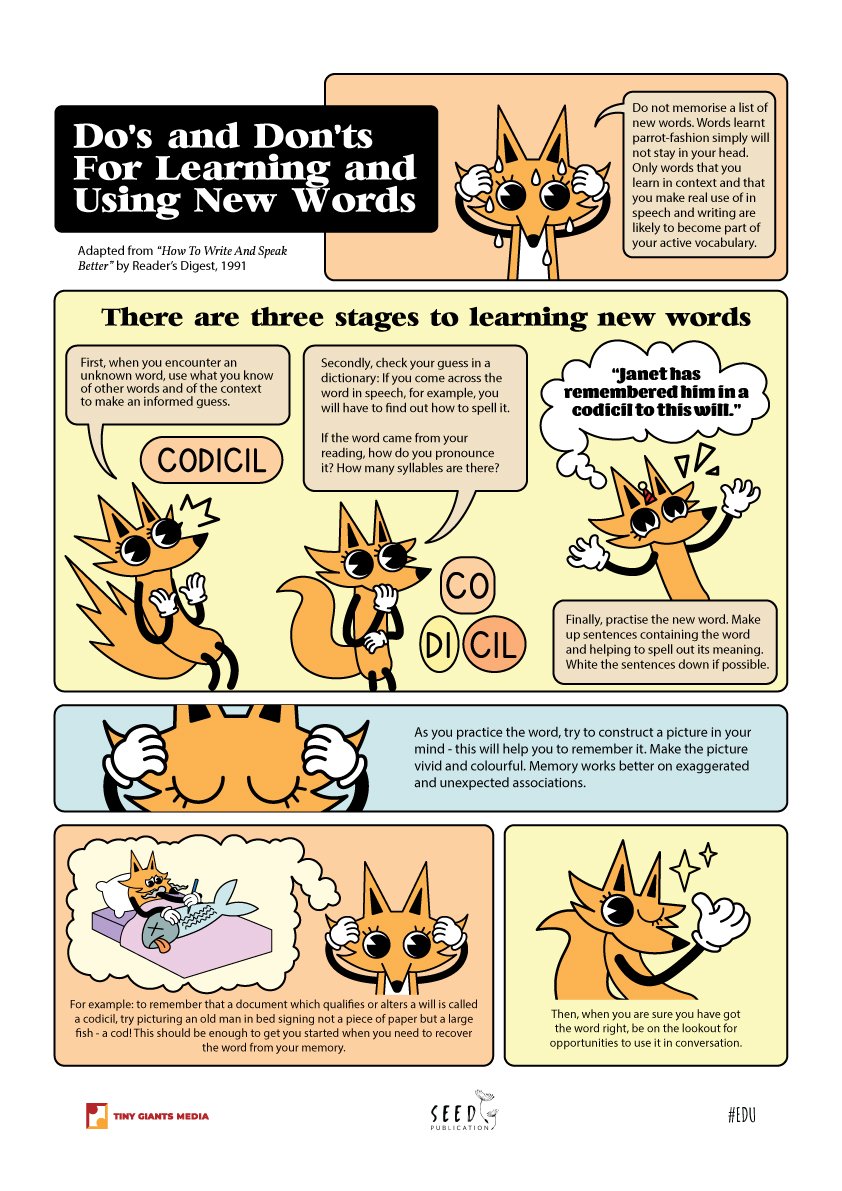Do's and don'ts for learning and using new words.

Do not memorise a list of new words. Words learnt parrot-fashion simply will not stay in your head. Only words that you learn in context and that you make real use of in speech and writing are likely to become part of your active vocabulary.
There are three stages to learning new words:
First, when you encounter an unknown word, use what you know of other words and of the context to make an informed guess.
Secondly, check your guess in a dictionary: If you come across the word in speech, for example, you will have to find out how to spell it. If the word came from your reading, how do you pronounce it? How many syllables are there?
Finally, practise the new word. Make up sentences containing the word and helping to spell out its meaning. White the sentences down if possible.
As you practice the word, try to construct a picture in your mind - this will help you to remember it. Make the picture vivid and colourful. Memory works better on exaggerated and unexpected associations.
For example: to remember that a document which qualifies or alters a will is called a codicil, try picturing an old man in bed signing not a piece of paper but a large fish - a cod! This should be enough to get you started when you need to recover the word from your memory.
Then, when you are sure you have got the word right, be on the lookout for opportunities to use it in conversation.
Adapted from “How to write and speak better” by Reader’s Digest, 1991
Hi!
I’m Ilona Ang. I’m an expat, a wife, a mom, a daughter, a sister, and a friend. Here I share with you those gems of information that “already have been said, but nobody was listening to.” Welcome!

More like that:

Natural emotion gone bad and how to detect it.
Chinese Fairy Tales and Fantasies.
A story from a Japanese folktale collection.
An old story about anger and self-control.




























